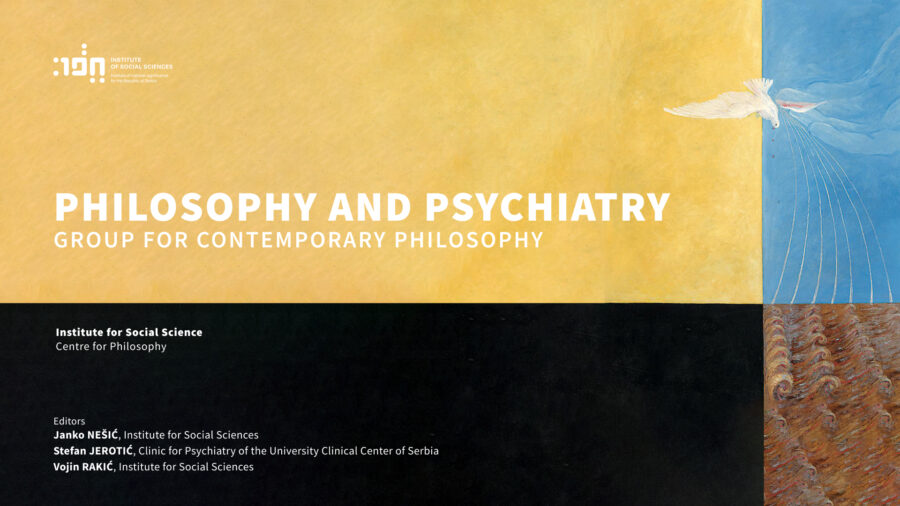In the lecture held on March 17 in the Grand Hall of the Institute of Social Sciences (via Zoom and in front of a live audience), dr Valeria Bizzari (Husserl Archives of the KU in Leuven) presented a type of phenomenological interview developed for investigating autism: Examination of Autistic Intersubjective Experiences (EAIE).
She tried to answer this question: Who is the expert when it comes to understanding people—the detached scientist or the ordinary person in everyday life” .
Specifically, she focused on a very specific instrument: the phenomenological interview. It was explained what it consists of and why it is important in the clinical context. The undisputed merit of this instrument, for example, is the fact that it does not consider the patient an object, a mere matter to be studied, and the relationship with the therapist is not one-sided; on the contrary, the semi-structured dialogue on which it is based allows for the establishment of a reciprocal relationship and a genuine exchange between two subjectivities. Obviously, this ‘we’ that is created is a peculiar subject because we know that psychopathologies are often synonymous with a breakdown in the dialogue and relationality that characterises every human being. This is why it is important for the therapist to be aware of the deep phenomenological differences (Havens 1986) between her and the patient.
This is what happens in EASE, EAWE and other studies that take into account the patient’s lived experience. These interviews are intended to facilitate a dialogue that captures qualitative aspects of the patient’s experience. They represent a form of “descriptive phenomenology” because they are based on reports of subjective experiences, but also a form of “categorical phenomenology” because they focus on basic, structural experiential coordinates. The aim is to enrich and facilitate diagnosis and to hypothesise correlations between subjective experiences and neural factors. They may also correspond to a form of ‘genetic-structural phenomenology’ that seeks to identify the key structures of experience and the basic disorders that cause psychopathology. In the last part of this methodological introduction, she presented a phenomenological interview that she recently developed at the University of Heidelberg: the Examination of Autistic Intersubjective Experiences (EAIE), aimed specifically at exploring the functioning of the different levels of sociality of autistic persons.
Valeria Bizzari`s lecture is the nineteenth in the series of seminars on Philosophy and Psychiatry organized by the Center for Philosophy at the Institute of Social Sciences.

